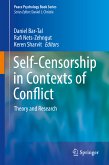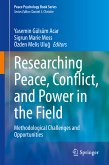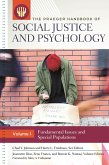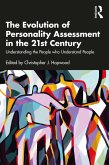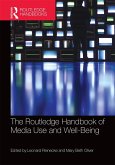Despite our advances in technology and education, we still live in a world permeated by violence. This introductory textbook in the field of peace psychology addresses the psychological causes of violence and nonviolence, conflict resolution, nonviolent struggle, and the confluence of public policy and private lifestyles.
Just as health providers study disease and its prevention, understanding the causes of violent behavior and how to prevent such behavior is a basic cornerstone for those who are working towards a healthy society. Another parallel: maintaining physical health involves positive practices; similarly, positive nonviolent approaches need to be psychologically understood and encouraged. The second edition of The Psychology of Peace: An Introduction demonstrates what can be learned through the lens of peace psychology, providing a solid foundation in the psychological theories needed for building and maintaining a peaceful society and peaceful individuals.
This second edition incorporates the tremendous amount of new research and subsequent events since 2003, including post-2003 violent and nonviolent revolutions, such as the ongoing war in Iraq and Afghanistan, and the nonviolent overthrowing of dictators in Tunisia and Egypt. Author MacNair again outlines why application of psychological study to the soundness of decision-making for public policy-and to the policies themselves-is crucial knowledge, and how applying the study to private practices and even art can help build up a peaceful society.
Just as health providers study disease and its prevention, understanding the causes of violent behavior and how to prevent such behavior is a basic cornerstone for those who are working towards a healthy society. Another parallel: maintaining physical health involves positive practices; similarly, positive nonviolent approaches need to be psychologically understood and encouraged. The second edition of The Psychology of Peace: An Introduction demonstrates what can be learned through the lens of peace psychology, providing a solid foundation in the psychological theories needed for building and maintaining a peaceful society and peaceful individuals.
This second edition incorporates the tremendous amount of new research and subsequent events since 2003, including post-2003 violent and nonviolent revolutions, such as the ongoing war in Iraq and Afghanistan, and the nonviolent overthrowing of dictators in Tunisia and Egypt. Author MacNair again outlines why application of psychological study to the soundness of decision-making for public policy-and to the policies themselves-is crucial knowledge, and how applying the study to private practices and even art can help build up a peaceful society.




